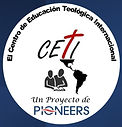Post #8. The Person and Identity in Learning.
- Admin - David Hunter

- 18 abr 2024
- 3 Min. de lectura
(from Pages 52-54)
“Our aim, that focusing on the structure of social practice and on participation therein implies an explicit focus on the person, may appear paradoxical at first. The individualistic aspects of the cognitive focus characteristic of most theories of learning thus only seem to concentrate on the person. Painting a picture of the person as a primarily ‘cognitive’ entity tends to promote a nonpersonal view of knowledge, skills tasks and activities and learning? As a consequence, both theoretical analysis and instructional prescriptions tend to be driven by reference to reified “knowledge domains,” and by constraints imposed by the general requirements of universal learning mechanisms understood in terms of acquisitions and assimilation. In contrast, to insist on starting with social practice on taking participation to be the crucial process, and on including the social world at the core of the analysis only seems to eclipse the person."
“In reality, however, participation in social practice suggests a very explicit focus on the person, but as the person in the world as a member of a sociocultural community. This focus in turn promotes a view of knowing as activity by specific people in specific places in specific circumstances.” (52)
Question: How does the learning process in our educational program help cultivate the student to form their identity in their academic journey?
"As an aspect of social practice, learning involves the whole person; it implies not only a relation to specific activities, but a relation to social communities, it implies becoming a full participant, a member, a kind of person. In this view, learning only partly, and often incidentally, implies becoming able to be involved in new activities, to preform new tasks and functions, to master new understandings."
"Activities, tasks, functions, and understandings do not exist in isolation. They are part of broader systems of relations in which they have meaning. These systems of relations arise out of and are reproduced and developed within social communities, which are in part systems of relations among persons. The person is defined by as well as defines these relations. Learning thus implies becoming a different person with respect to the possibilities enabled by these systems of relations, to ignore this aspect of learning is to overlook the fact that learning involves the construction of identities." (53)
Question: In regards to social practice, the focus is on a community where activities, tasks, functions and understanding are present among people who are participating together at different levels where learning takes place. When you create your learning objectives in your curriculum, how can these be tied to social practice in a community where your student can practice the concepts learned and be reflected upon as part of the lesson, rather than tagged on to a project at the end?
Perhaps the more profound objectives we have in Christian education relates to spiritual formation. Our study on Situated Learning brings us to the point of social transformation beginning with the formation of identities within the social practice. How can we as Christian educators go even farther to help one discover their identity in Christ in the context of Christian social practice in community?
“Viewing learning as Legitimate Peripheral Participation means that learning is not merely a condition for membership, but is itself an evolving form of membership. We conceive of identities as long-term, living relations between persons and their place and participation in communities of practice. Thus identity, knowing and social membership entail one another.
There may seem to be a contradiction between efforts to 'decenter' the definition of the person and efforts to arrive at a rich notion of agency in terms of 'whole persons.' We think that the two tendencies are not only compatible, but they imply one another. If one adopts as we have a relational view of the person and of learning: It is by the theoretical process of decentering in relational terms that one can construct a robust notion of the 'whole person' which does justice to the multiple relations through which persons define themselves in practice. Giddens argues for a view of decentering that avoids the pitfalls of 'structural determination' by considering intentionality as an ongoing flow of reflective moments of monitoring in the context of engagement in a tacit practice. We argue further that this flow of reflective moments is organized around trajectories of participation. This implies that changing membership in communities of practice, like participation, can neither fully internalized nor fully externalized. (53-54)
Reflection: the concept of decentering to develop a sense if identity in community can be reflected in Christian communities. As we 'decenter' and develop a common identity in Christ as the center of our community. Can we integrate this concept into our lesson plans, or is this an organic outcome?


Comentarios